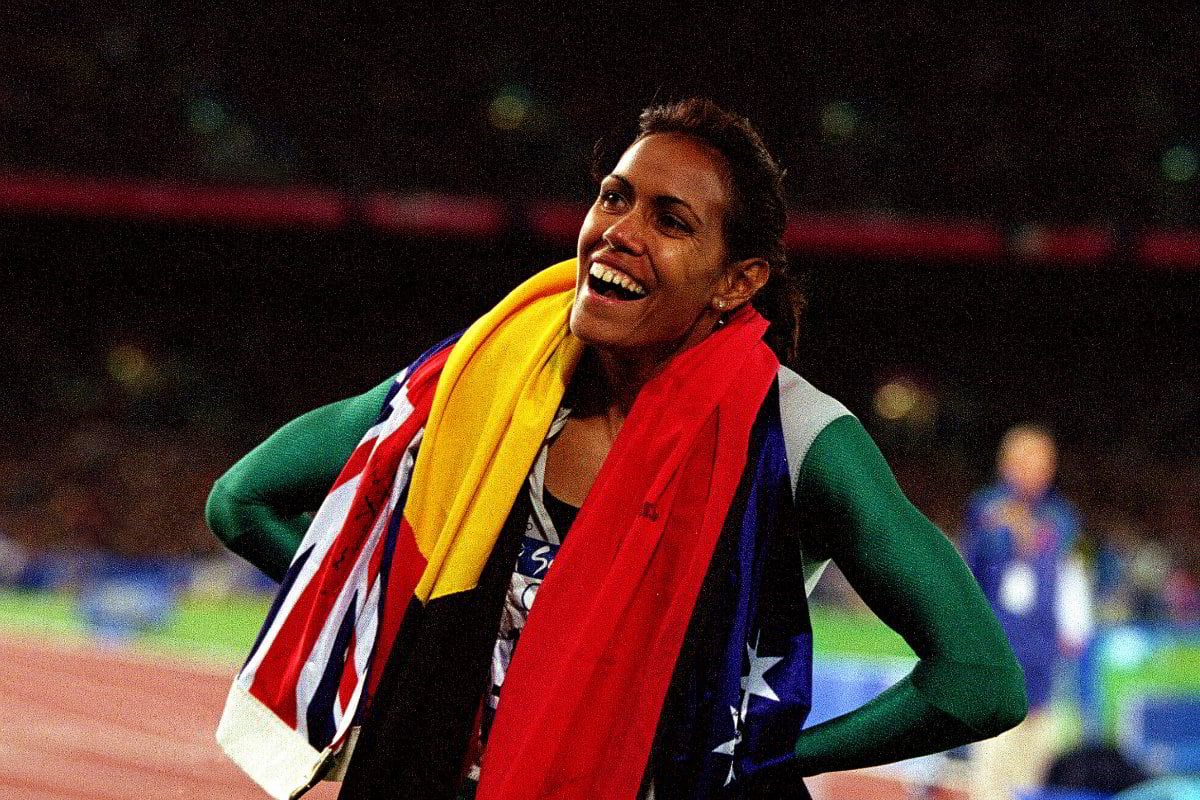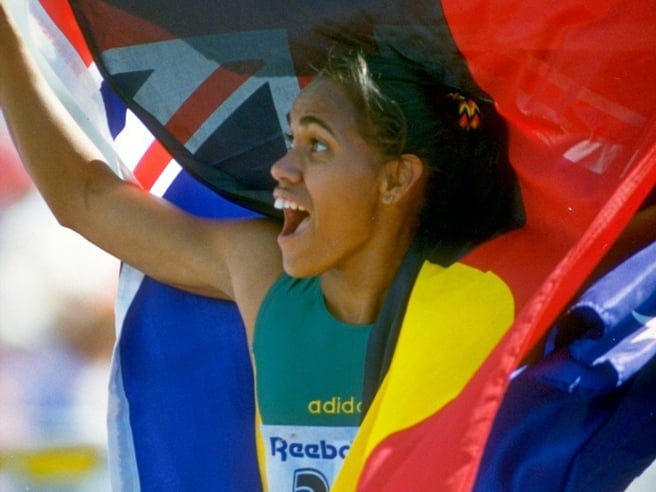
On the evening of September 25, 2000, Australia stopped for 49.11 seconds.
We, along with the billions who tuned in from around the world, watched as one of our greatest-ever athletes, clad in a head-to-toe body suit, strode across the 400m finish line, metres ahead of her competitors.
After a buildup unlike any in our sporting history, Cathy Freeman had won gold at a home Olympics.
Watch: The stunning documentary, Freeman, airs on Sunday. Post continues below.
With her shoulders free of the weight of expectation, Freeman wrapped them in two symbols of pride: the national flag of Australia and the Aboriginal flag, gently twisted together.
But that victory-lap act put it all at risk. Carrying the flag of her people was in breach of International Olympic Committee Rules.
Freeman knew. According to media reports, she'd even been warned against it. But she did it anyway.
The Victoria controversy.
The morning of her 400m final at the 1994 Commonwealth Games in Victoria, Canada, Cathy Freeman pulled a carefully folded Aboriginal flag from her kit bag and handed it to her coach.
She wanted it waiting at the finish line, just in case.


Top Comments